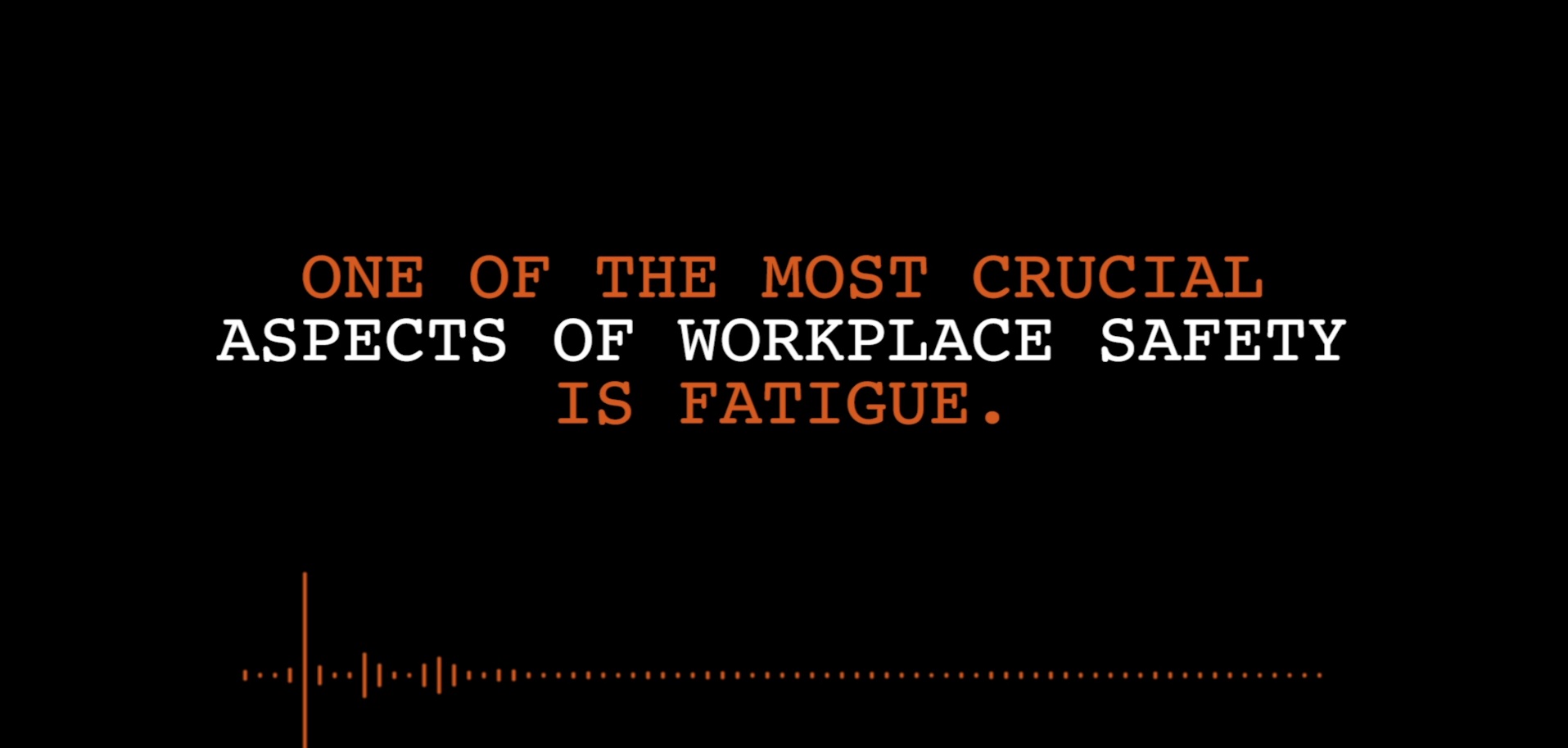
This episode looks at how fatigue affects workplace safety and health. Sleep is a necessary part of safety in the workplace and can be affected by many factors including workplace policies like shift work.
Dr. Amany Farag discusses how fatigue and shift work affects nurses and the importance of emphasizing that all employees get their recommended amount of sleep each week as well as the cost employers face when their workforce is fatigued.
Michael: You’re listening to Workplace Matters. One of most crucial aspects of workplace safety is fatigue. A fatigued employee cannot work as effectively or as safely as a well-rested one. And nearly one third of adults report sleeping less than six hours a night. We looked at workplaces where the sleep deficit might cause serious problems, and what employers can do to help their employees sleep hygiene.
Michael: Dr. Amani Farag is an assistant professor in the College of Nursing at the University of Iowa and a registered nurse. While studying which factors caused medication errors. She found a correlation between the errors and lack of sleep. Amany believes sleep is a significant predicator of fatigue and fatigue can cause medication errors.

Amany: What is shift work? Shift work is defined as any time that employee the individual has to work beyond the 7:00 p.m. So wherever any time that the the nurse or the pilot or the truck driver work beyond 6:00. So they are sleeping over night while they are working, sleeping at their work. So that is what defined as a shift work. So some industries like nursing truck drivers and the aviation, by the virtue of this profession, you have to work overnights, 24 7 to provide the care of your customers. And this is where the issue starts, because you are working against your natural mechanics, like we are wired that at night you have to sleep. So shift workers are working against their natural circadian rhythm. So you are pushing your body to perform and function in a way that they are not hardwired to perform. And this is where the issue and the mismatch between what you are wired and designed to perform and the external factor mandated by your work.
Michael: Shift work already made it difficult for nurses to get enough sleep. But while doing her research, Dr. Farag found that the nurses in her study had also established a culture where the health and safety of the patient mattered more than their own.
Amany: Nurses they don’t think about themselves. They think about their patients. They think about their colleagues before thinking about themselves. So in some of my nurses, they said, yes, I am tired. I know that I am not able to open my eyes, but I cannot leave my patient and go through that break room to take a break, because if I’m going to do this, I have to leave my patient to one of my colleague who is also sick and tired. So they continue working. It is not helping themselves or their patient. They are making more errors.
Michael: Sleep is not an issue that only affects individuals. While every situation may not be as life or death as it is with nurses. There’s always a cost when individuals don’t get their recommended seven to eight hours of sleep.
Amany: They found that cost for employer amounts to one hundred thirty-four billion dollar in terms of lost productivity, which is like the presentism like the employees here, but not performing or they are taking vacations or sick leaves or whatsoever because they are tired, they are fatigue. So the amount of this amount of money of one hundred thirty four billion dollar. Some other studies found that individuals who are awake beyond 17 hour, they are functioning equivalent to a person with a blood alcohol level of 0.1, which is legally intoxicated. And the there is an increasing risk for injuries for shift workers versus non-shift workers.
Michael: While errors due to lack of sleep may seem small, as Amany said, the total effect is estimated to cost employers $134 six a year due to lack of productivity. We asked Dr. Elizabeth Ablah, associate professor of population health at the University of Kansas, about what workplaces that must do shift work can do to help stay rested.

Elizabeth: So there is a great policy that we recommend employers take a look at. And that is a stable shift policy. What that does is it allows employers to put someone who is on third shift to consistently stay on third shift. Somebody who’s on first shift consistently is on first, etc. So what it does is it allows the employee to adjust to that time difference and to get into the same sort of rhythm. It is extremely dangerous to have people shift their shift work.
Amany: We are as American society in general, we tend to work, work, work, work, work and life and leisure. It comes as a second. What we can do? I know a lot of organization have some wellness initiatives. This is a good start. But to what extent employees are taking advantage of this wellness initiatives? Some do say, OK, we have it, but employees are not taking it. The other important thing similar to the nursing, what is the culture e? What is the pervasive culture across or among the employees? What is the culture like in nursing, my profession? It is not there. We do not take care of ourselves. So it is important to let them know that taking care for yourself is important to be able to take care of your patients.
Michael: This is not a new issue. Companies have wellness programs in place, but it is important to even monitor how much those resources are being utilized. The importance of maintaining a healthy sleep schedule and making sure employees have the time to to utilize those initiatives cannot be stressed enough. Getting enough sleep causes positive improvements for more than just the employee.
Amany: Once we are tired, we need just to sleep
Michael: Workplace Matters is supported by the National Institute for Occupational Safety and Health. To listen to more podcasts for your ongoing video series. Or for more information about us, visit Healthier Workforce Center dot org. Thank you.
The Workplace Matters podcasts are located here.
COVID-19 Employer Resources are available here.
